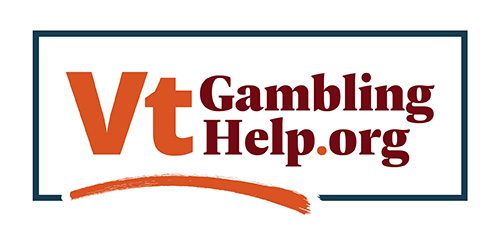Get Help Now
Online sports betting. Scratch-offs. Card games among friends. It doesn’t matter what you’re playing. If you need help or want to quit gambling, our team of specialists is here for you, 24/7. All calls and messages are free and confidential.
- 1-800-GAMBLER
- VTGamblingHelp.org. Message via LiveChat on the bottom right-hand corner of your screen.
What’s a gambling problem?
Gambling becomes a problem when it negatively impacts any area of your life. It doesn’t matter how much you’ve lost or won — nor how much you know about a sport or team.
Someone with a gambling problem, also known as a gambling disorder or gambling addiction, becomes more preoccupied with gambling over time. Like any addiction, gambling disorder causes disruptions to your well-being, job, and relationships.
If this sounds like you or someone you know, you’re not alone. Over 11,600 Vermonters (2.2% of the adult population) are estimated to have gambling problems.
How do I know I have a gambling problem?
Problem gambling can be tough to spot and easy to hide. Common signs include:
- Needing to gamble with more money to achieve the same desired excitement
- Feeling restless or irritable when trying to cut down or stop gambling
- Gambling when feeling stressed, sad, or anxious
- Chasing losses or returns to get even
- Lying to conceal the extent of gambling
- Relying on others for money to continue playing or to try to fix situations caused by gambling
- Gambling at risk of jeopardizing a relationship, job, or one’s finances
What’s Self-Exclusion?
Even the best athletes pause to take a breather, right?
Self-Exclusion allows Vermonters to take a play break from sports betting. Individuals can enroll remotely through Vermont’s Department of Liquor and Lottery.
You’ll self-select how long your break will be. During your break, you’ll be removed from licensed online sportsbooks and marketing lists.
Where can I find community?
In-person and virtual meetings can offer guidance and support.
Some are for individuals struggling with gambling problems. Other support groups are for loved ones. Many groups also offer various resources.
If you’re in Vermont, check out the New England Intergroup of Gamblers Anonymous.
If you’re based in the United States, look into Gamblers Anonymous, Bettors Anonymous, and Recovery Road. All host virtual meetings, and Gamblers Anonymous offers support groups for family, friends, and loved ones.
You can also join an online community like GamTalk, Gam-Anon Facebook Group, Gambling Addiction and Recovery Facebook Group, and In The Rooms.
Where can I find treatment?
Our team of specialists can provide referrals near you, including telehealth options.
Call 1-800-GAMBLER or message us on LiveChat to get started.

